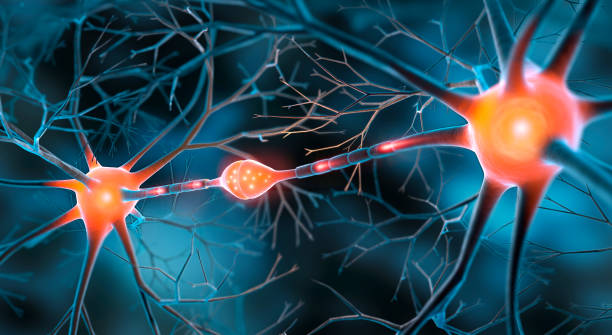Nerve pain, often called neuropathic pain, is a condition that affects millions of people around the world. Unlike regular pain from a cut or injury, this type of pain comes from damage or malfunction in the nervous system itself. It can feel like burning, tingling, stabbing, or shooting sensations that may come and go or remain constant.
This kind of pain can be difficult to live with and may interfere with daily life. It is often caused by health conditions such as diabetes, shingles, multiple sclerosis, or pressure on the nerves. Since it doesn’t respond well to common pain treatments, many people seek other ways to find relief.
Thankfully, managing nerve pain naturally is possible and can be very effective. Lifestyle changes, gentle exercises, stress reduction, and natural supplements may help calm the nerves and reduce discomfort. These methods can offer long-term relief and improve overall quality of life.
This comprehensive article explores nerve pain, its common causes, and the top 7 natural methods you can start using today for real relief.
Understanding Nerve Pain
Before diving into the natural remedies, it’s important to understand what nerve pain is.
What Causes Nerve Pain ?
Nerve pain arises from damaged or malfunctioning nerves. This can happen due to:

Diabetes (diabetic neuropathy)
Shingles (postherpetic neuralgia)
Injuries or surgeries
Spinal issues like herniated discs
Autoimmune conditions (e.g., lupus, multiple sclerosis)
Vitamin deficiencies
Alcoholism
Chemotherapy
Symptoms can range from mild discomfort to severe, unrelenting pain. Often, nerve pain is persistent and can resist conventional treatment.
Why Go Natural ?
Prescription drugs such as anticonvulsants, antidepressants, and opioids are often used for nerve pain relief. While they may reduce pain, these medications can also lead to unwanted side effects like drowsiness, dizziness, and even addiction with long-term use. For many people, this makes them less ideal for managing ongoing discomfort.
Natural remedies provide a safer and more balanced approach to nerve pain relief. Options like gentle movement, stress reduction techniques, and herbal supplements can support the nervous system without harsh side effects. When combined with healthy habits, these natural methods often offer lasting comfort and improve overall well-being. Many individuals find that a holistic approach works better for long-term management of nerve-related pain.
Top 7 Natural Tips For Nerve Pain Relief—backed by science and praised by many who suffer from neuropathic pain.
✅ Anti-Inflammatory Diet: Heal from the Inside Out

Food can be a powerful tool when it comes to healing the body. What we eat plays a big role in how we feel, especially for those dealing with nerve pain. Choosing the right foods can support the body’s natural healing process and promote long-term relief.
A diet rich in anti-inflammatory nutrients is especially helpful for nerve pain relief. Foods like leafy greens, berries, nuts, seeds, and fatty fish help reduce inflammation, which is often linked to nerve damage and discomfort. These foods also support healthy circulation and nerve function.
Avoiding processed foods, excess sugar, and unhealthy fats is just as important. These can trigger inflammation and worsen nerve pain. By focusing on natural, whole foods, you give your body the tools it needs to calm the nerves and promote healing from the inside out. A healthy diet is a simple yet effective step toward lasting nerve pain relief.
Best Foods for Nerve Pain Relief:
Leafy greens (spinach, kale)
Berries (blueberries, strawberries)
Fatty fish (salmon, sardines)
Nuts and seeds (especially walnuts and flaxseeds)
Turmeric and ginger
Avocados
Whole grains
These foods provide antioxidants, omega-3s, and essential vitamins like B1, B6, B12, and E—all critical for nerve repair.
Foods to Avoid:
Processed foods
Sugar
Alcohol
Refined carbs
Artificial additives
A plant-forward, whole-food diet reduces systemic inflammation, which plays a key role in nerve pain.
✅ Regular Exercise: Move to Improve
When you’re in pain, the idea of moving might sound difficult or even harmful. But in many cases, gentle exercise can actually help reduce discomfort and support healing. For people dealing with nerve pain, movement may be more beneficial than rest.
Light physical activity helps improve blood flow, which is important for nourishing damaged nerves. It can also reduce stiffness, ease muscle tension, and boost mood. Walking, stretching, yoga, or swimming are all gentle ways to stay active without putting too much pressure on the body.
Regular movement is a natural and effective method for nerve pain relief. It encourages the body to release endorphins, which are natural painkillers. Over time, staying active can help reduce pain levels and improve overall mobility and strength. Even a few minutes of gentle exercise each day can make a big difference in managing nerve pain.
Benefits of Exercise for Nerve Pain:
Increases blood flow to nerves
Reduces inflammation
Enhances endorphin production (natural painkillers)
Improves flexibility and strength
Lowers blood sugar (especially helpful in diabetic neuropathy)
Recommended Activities:
Walking (start slow, build up)
Swimming or water aerobics
Stretching or yoga
Tai chi
Aim for at least 30 minutes a day, 5 days a week. Always consult your doctor before starting a new routine.
✅ Herbal Remedies: Nature’s Healing Helpers

Many herbs have been used for centuries to ease pain and calm the nervous system. These natural remedies offer gentle support and can help reduce discomfort without the side effects that often come with prescription drugs.
Certain herbs are known for their nerve-soothing properties. They may help reduce inflammation, relax tense muscles, and support the healing of damaged nerves. When used regularly, they can become a valuable part of a natural nerve pain relief routine.
Herbal teas, oils, or supplements made from calming herbs can promote better sleep, ease stress, and improve overall comfort. They work best when combined with a healthy lifestyle and balanced diet. For those seeking a more natural way to manage discomfort, herbs offer a safe and effective path to nerve pain relief, helping the body recover and feel more at ease over time.
Top Herbs for Nerve Pain Relief:
🌿 Turmeric (Curcumin)
Powerful anti-inflammatory and antioxidant
Improves nerve function
Combine with black pepper for better absorption
🌿 St. John’s Wort
Traditionally used for nerve pain and depression
May support nerve regeneration
Caution: Can interact with medications
🌿 Alpha-Lipoic Acid
Antioxidant that improves diabetic neuropathy
Found in spinach, broccoli, and potatoes
Available as a supplement
🌿 Capsaicin (Chili Pepper Extract)
Blocks pain signals when applied topically
Available in creams and patches
🌿 Skullcap and Valerian Root
Calming herbs that may help with nerve sensitivity and sleep issues
Before using herbal remedies, speak to a healthcare professional—especially if you’re on medication or managing a chronic illness.
✅ Essential Oils and Massage: Soothe and Stimulate

Topical treatments are a helpful way to manage nerve pain, especially when the discomfort is in one specific area. These treatments are applied directly to the skin, allowing fast, targeted relief without affecting the entire body.
Creams, gels, or patches made with natural ingredients or soothing agents can help calm irritated nerves and reduce pain signals. Some contain ingredients that warm or cool the skin, which can distract the nerves and ease discomfort. They are easy to use and often bring quick results.
For people looking for non-invasive options, topical products can be a simple and effective part of a nerve pain relief plan. When used regularly, they may help reduce pain, improve movement, and make daily tasks easier. Combined with other natural methods, they offer a safe and supportive way to find comfort from nerve-related pain.
Effective Essential Oils:
Lavender oil – Relaxing, reduces pain perception
Peppermint oil – Cooling effect, soothes burning sensations
Eucalyptus oil – Anti-inflammatory, reduces swelling
Frankincense – Promotes healing and regeneration
How to Use:
Always dilute with a carrier oil (like coconut or jojoba oil)
Gently massage into the affected area 2–3 times daily
Massage therapy, even without essential oils, can also increase blood flow and ease muscle tension, both of which support nerve health.
✅ Mind-Body Practices: Calm Your Nervous System
Chronic pain doesn’t just affect the body—it also impacts the mind. Living with constant discomfort can lead to stress, anxiety, and emotional exhaustion. These mental struggles can actually make the pain feel worse over time.
Mind-body techniques are helpful tools for nerve pain relief. Practices like deep breathing, meditation, and guided relaxation can calm the nervous system and reduce stress levels. When the mind relaxes, it often sends fewer pain signals to the body, making it easier to cope with discomfort.
These gentle methods can be used daily to build emotional strength and inner calm. Over time, they can improve sleep, lift mood, and help the body heal naturally. Mind-body approaches offer a safe and effective way to support nerve pain relief while improving your overall well-being, making them a valuable part of any long-term pain management plan.
Top Mind-Body Practices for Pain:
🧘♀️ Meditation and Mindfulness
Reduces perception of paiN
Improves coping ability
Can change how your brain processes pain
🧘♂️ Deep Breathing Exercises
Activates the parasympathetic (rest and relax) nervous system
Eases muscle tension
🧘 Yoga and Tai Chi
Combines movement, breath, and mindfulness
Builds strength and flexibility
Reduces stress hormones that worsen pain
These practices require consistency but offer significant, long-term relief.

✅ Vitamins and Nutrients: Fuel for Nerve Repair
Your nerves rely on certain vitamins and minerals to stay healthy and function properly. When the body lacks these important nutrients, it can lead to nerve damage or make existing nerve pain worse. Over time, this may result in numbness, tingling, or sharp pain.
Key nutrients like B vitamins, magnesium, and others play a major role in nerve repair and signal transmission. Without them, the nervous system struggles to perform, and healing slows down. Getting enough of these nutrients through diet or supplements can support nerve health and improve comfort.
Proper nutrition is an important step toward long-term nerve pain relief. By giving your body what it needs, you help strengthen the nerves and reduce discomfort. If you’re dealing with ongoing nerve pain, checking your vitamin levels and focusing on a balanced diet may be a simple yet powerful way to support your recovery.
Essential Vitamins for Nerve Health:
🔹 Vitamin B12
Essential for nerve regeneration
Found in meat, eggs, dairy, and fortified foods
🔹 Vitamin B1 (Thiamine) and B6
Protect nerve endings
Important for energy metabolism
Be careful: too much B6 can cause nerve damage
🔹 Vitamin D
Helps reduce inflammation and supports nerve fiber health
🔹 Magnesium
Calms overactive nerves and muscles
Found in leafy greens, beans, and seeds
Supplements can help, but whole-food sources are preferable. Always test your levels before supplementing long-term.
✅ Heat and Cold Therapy: Fast, Simple Relief
Temperature therapy is a simple and effective way to manage nerve pain. Using hot or cold packs can bring quick relief, especially when applied to painful or inflamed areas. The right temperature at the right time can make a noticeable difference in comfort.
Cold therapy helps reduce swelling and numbs sharp pain, making it useful during flare-ups. On the other hand, heat therapy relaxes muscles and improves blood flow, which can support healing and ease stiffness. Switching between hot and cold may also help balance nerve signals and reduce discomfort.
When used properly, temperature therapy becomes a useful part of a nerve pain relief plan. It’s safe, affordable, and easy to use at home. Whether you’re dealing with sudden pain or ongoing symptoms, applying heat or cold can help calm the nerves and give your body the relief it needs.
Cold Therapy:
Numbs sharp pain
Reduces inflammation and swelling
Use a cold pack wrapped in a towel for 15–20 minutes
Heat Therapy:
Relaxes tense muscles
Improves circulation
Use heating pads, warm baths, or hot compresses
Alternate between hot and cold if pain persists. Just avoid applying directly to the skin or using extreme temperatures.

🌟 Bonus Tip: Sleep and Stress Matter More Than You Think
Poor sleep and high stress amplify nerve pain. When you’re not rested, your body can’t heal properly, and stress chemicals increase pain sensitivity.
Tips for Better Sleep and Lower Stress:
Establish a bedtime routine
Limit screen time before bed
Use white noise or calming music
Avoid caffeine and alcohol
Practice gratitude or journaling
Try calming herbal teas like chamomile or lemon balm to wind down at night.
🔁 Combining Natural Approaches for Best Results
Each natural remedy can support nerve pain relief on its own, but combining several methods often brings better results. When used together, these approaches work in harmony and support each other’s effects.
For example, someone who follows an anti-inflammatory diet, takes daily walks, uses B12 supplements, applies essential oils, and practices meditation may feel stronger improvements than someone relying on just one method. This combination helps address pain from different angles—nutrition, movement, relaxation, and nerve support.
Creating a well-rounded plan for nerve pain relief can lead to longer-lasting comfort. Blending multiple natural approaches helps calm the nerves, reduce inflammation, and improve overall well-being. It’s not about doing everything at once, but finding a mix that fits your lifestyle and brings steady relief.
⚠️ When to See a Doctor

Natural treatments can be powerful, but always speak to a healthcare provider if:
Your nerve pain is worsening
You’re unsure of the cause
You experience weakness or loss of sensation
You’re already taking medication or supplements
A proper diagnosis is key, and sometimes a combination of medical and natural care is the best path.
💬 Conclusion: You Deserve Relief

Finding effective nerve pain relief can feel overwhelming, especially when the pain is constant or unpredictable. But many people have found success by turning to natural methods that support the body gently and safely. Instead of relying only on medications, a balanced approach can offer long-term comfort.
Simple steps like eating anti-inflammatory foods, staying active with light movement, managing stress, and using natural supplements or topical treatments can make a big difference. Each method offers unique support, and when combined, they can work together to calm the nerves and reduce discomfort.
The journey to nerve pain relief takes time, but it is possible. By listening to your body and choosing natural ways to support healing, you give yourself the chance to feel better every day. With consistency and care, you can regain comfort, improve daily function, and enjoy a better quality of life—naturally and safely.
FAQs
Q.1 What is the best natural remedy for nerve pain relief ?
There isn’t one “best” remedy, but a combination of anti-inflammatory foods, gentle exercise, stress management, and key vitamins like B12 often works well together to ease nerve pain naturally.
Q.2 Can diet really help with nerve pain relief ?
Yes. Eating anti-inflammatory foods such as leafy greens, berries, nuts, and fatty fish can reduce inflammation, support nerve health, and help lessen pain over time.
Q.3 Is it safe to use herbal supplements for nerve pain ?
Most herbal supplements are safe when used as directed. However, it’s best to consult a healthcare provider, especially if you’re taking other medications.
Q.4 How does exercise help with nerve pain relief ?
Gentle movements like walking, stretching, or yoga improve blood flow, ease stiffness, and release natural pain-relieving chemicals in the body.
Q.5 How long does it take to see results from natural methods ?
Results can vary, but many people notice gradual improvement within a few weeks of consistent natural care.


